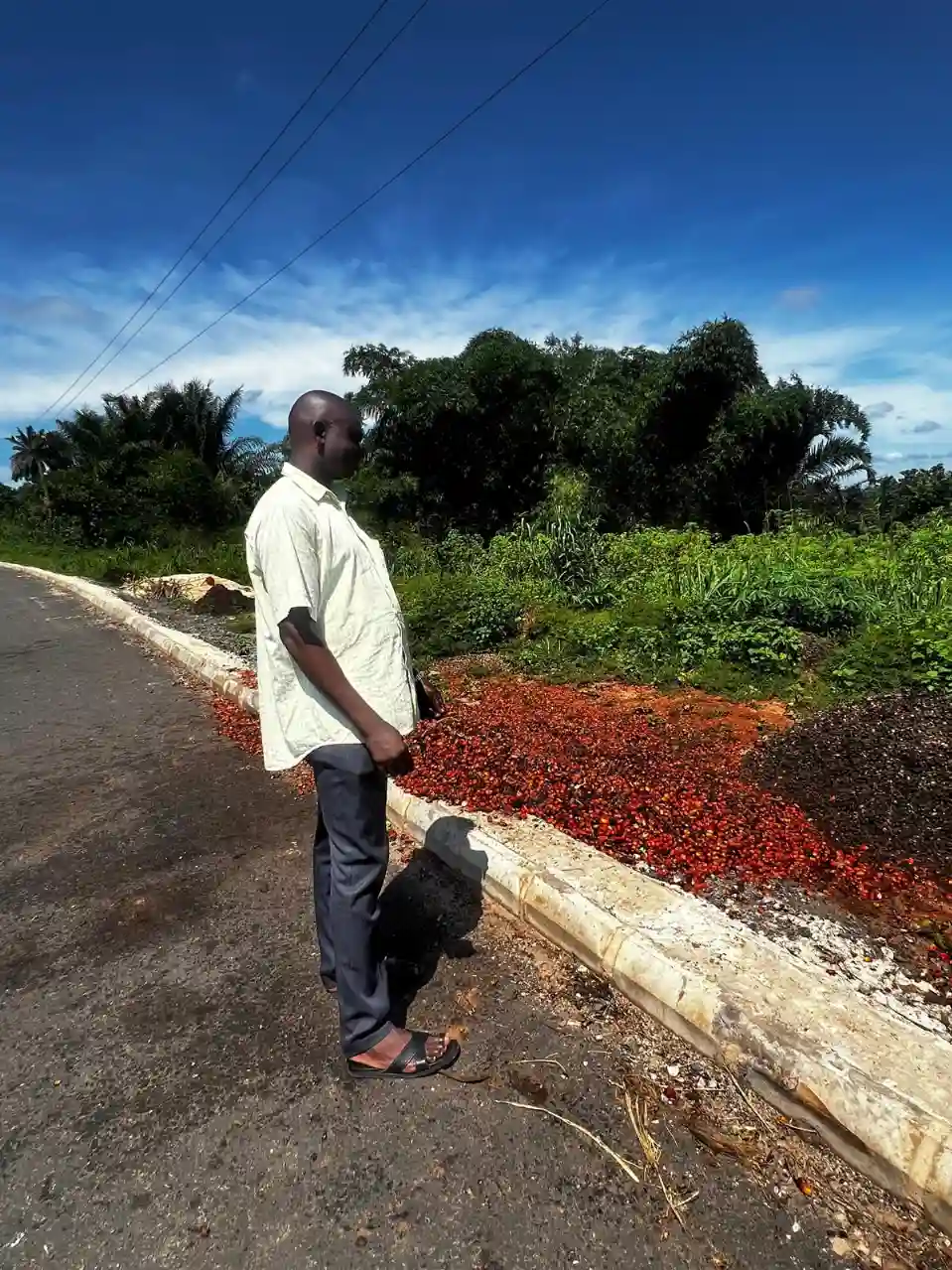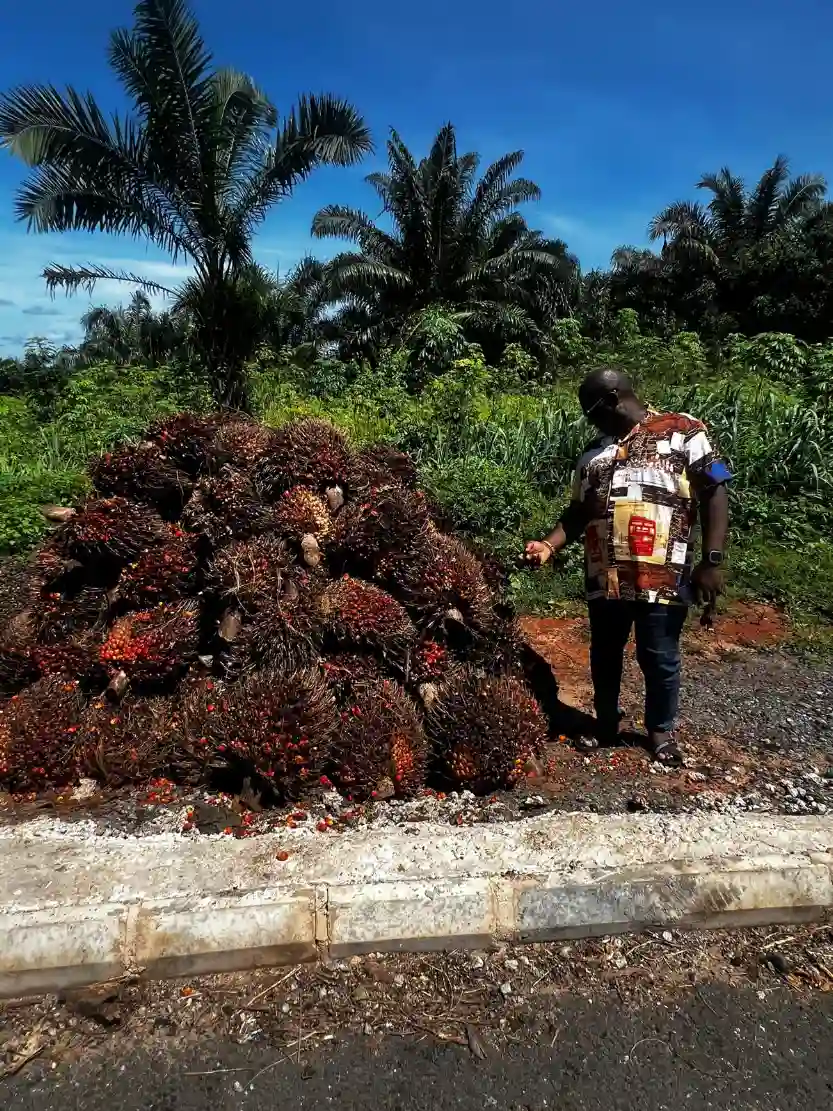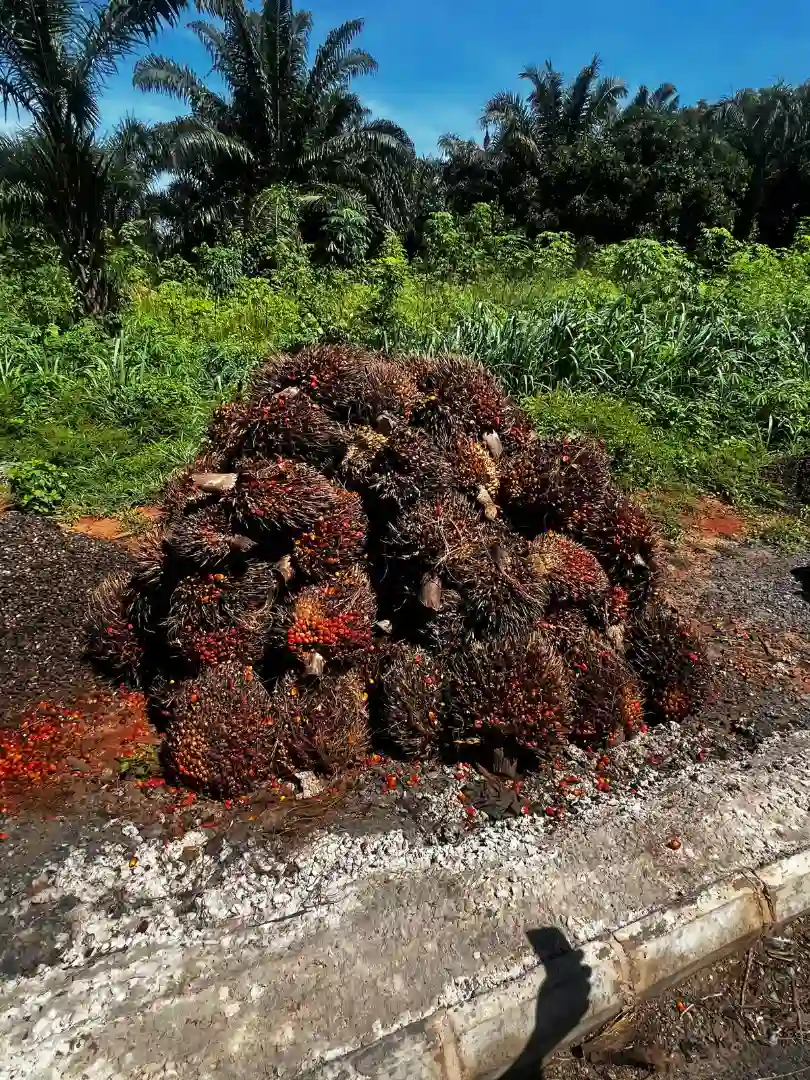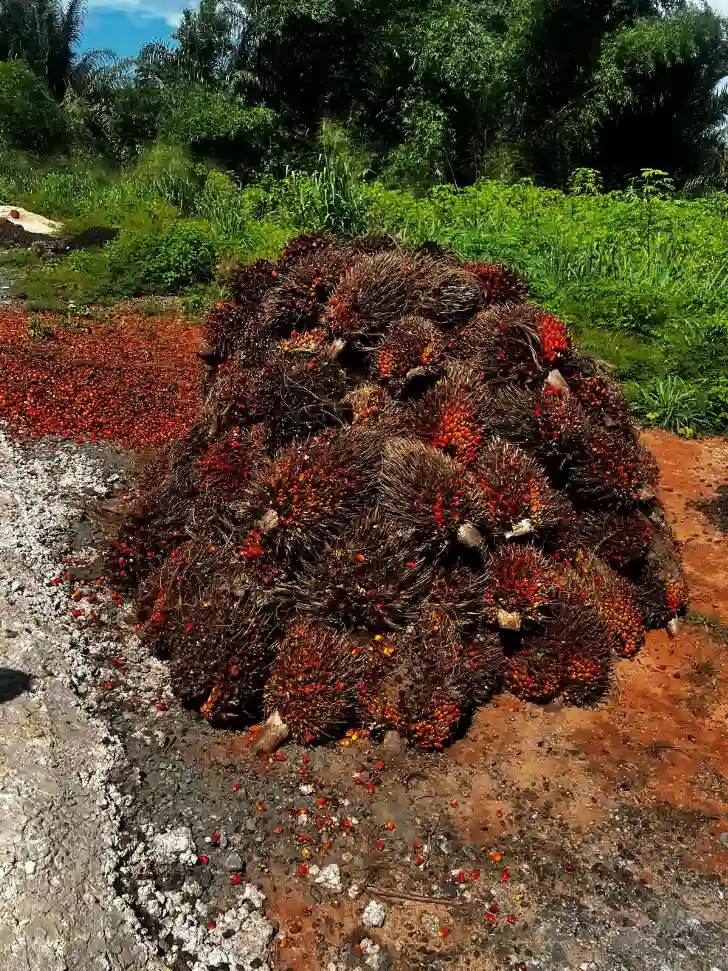The Living Legacy of Maldrain Farms and Industries.
To transform the farm into an integrated, sustainable, and high performing agribusiness delivering diverse products and creating employment and economic value across multiple sectors.

This five-year strategic plan outlines the farm’s phased development into a multi-enterprise agricultural hub focusing on:
- Palm Tree Plantation and Processing.
- Poultry Farming (Egg and Broiler Production).
- Catfish Aquaculture (Integrated with Cassava & Palm Byproducts).
1. Palm Tree Value Chain Expansion (Years 1–5)
The project will commence with full-scale palm fruit harvesting and kernel cracking operations, laying the foundation for a vertically integrated value chain. By Year 2, a modern oil mill will be installed, equipped with high-capacity extraction and separation systems to process palm oil, palm kernel oil, and related derivatives. This oil mill will be seamlessly integrated with a bottling and packaging facility, enabling the production of consumer-ready products. In addition to oil production, the facility will support the commercial processing of palm kernel cake, soap-grade oil, and biomass derived from agricultural waste. A branded packaging and distribution unit will be established to strengthen market presence and brand identity. To ensure long-term sustainability and community involvement, a smallholder training program will be developed by Year 4 to support out-growers and enhance their productivity.
As a result of these initiatives, the project aims to triple its annual oil yield by Year 3. The commissioning of the oil mill will significantly improve operational efficiency, reduce reliance on external processing facilities, and centralize production efforts. By Year 5, the venture targets successful entry into both domestic and export markets. Additionally, the project will harness kernel shells and fiber to generate biomass fuel, promoting environmental sustainability and waste-to-energy conversion.
Poultry Farming Integration (Years 2–5)
As a separate venture from Maldrain Farms, a poultry farming initiative will be launched between Years 2 and 5, with the objective of creating a scalable unit for broilers and layers. In Year 2, a modular poultry housing system will be established to accommodate 1,000 birds, providing the foundation for future growth. By Years 3 to 4, the operation will expand to over 3,000 birds, supported by the setup of a dedicated feed mill and an egg production unit. A key aspect of this initiative will be the integration of sustainable practices, including the use of poultry droppings as compost to enrich soil for palm and cassava cultivation. Additionally, a cold storage and distribution system will be developed to ensure product quality and broaden market access.
The expected outcomes include regular weekly sales of broilers and eggs to local markets, significant cost savings through the use of cassava and palm byproducts in feed formulation, and the launch of branded poultry products by Year 5.
Aquaculture Development (Years 3–5)
The objective of this initiative is to launch a sustainable catfish farming operation utilizing integrated farming techniques. Beginning in Year 3, the project will construct 4 to 6 concrete ponds designed for both hatchlings and grow-out phases of catfish production. By Year 4, locally available inputs such as cassava peels, palm kernel cake, and custom feed blends will be used to minimize costs and promote eco-friendly practices. The initiative will also explore the generation of biogas from fish and poultry waste to enhance energy efficiency. To add value and prepare for broader market access, fish processing infrastructure—including smoking and packaging facilities—will be developed alongside systems to ensure compliance with export regulations.
By Year 5, the operation aims to achieve monthly harvests of 3,000 to 5,000 kilograms of catfish. Integrated nutrient cycling between fish, crops, and livestock will enhance productivity and sustainability across the entire farming ecosystem. The project also targets entry into regional markets for both frozen and dried fish products.
Supporting this initiative are several cross-cutting priorities. Over 50 local individuals will be engaged and trained across farming, processing, and operational roles, contributing to community development. Investments will be made in improving infrastructure such as access roads, irrigation systems, storage facilities, and worker housing. Technology adoption will include digital tools for record-keeping, sales tracking, and automated feeding systems to increase efficiency. Additionally, sustainability will be a central focus, with the implementation of circular economy principles and the pursuit of environmental certifications such as those offered by the Roundtable on Sustainable Palm Oil (RSPO).
What We Do
Convert palm kernel shells and fibers into bioenergy for farm operations or sell them to power plants. Use empty fruit bunches as organic fertilizer to improve soil health.
Invest in a biomass energy plant using palm kernel shells and fibers to generate electricity for the farm and nearby communities.
Collect and recycle rainwater for irrigation and processing needs. Treat wastewater from the processing facility before releasing it.
Our Gallery






